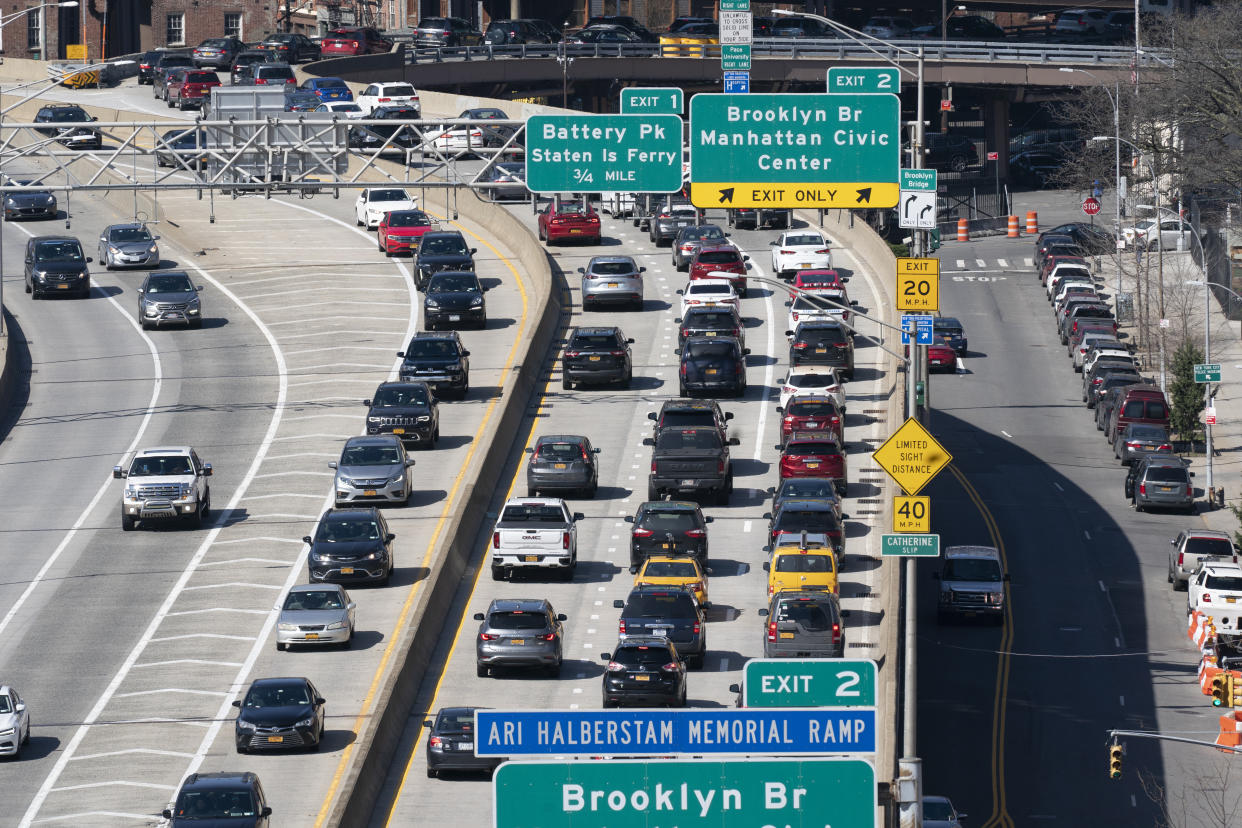Biden’s tax and spending plans could dent GDP
President Biden says his “American Jobs Plan” will create jobs and turbocharge economic growth. Economists aren’t so sure.
An analysis of Biden’s plan by the Penn Wharton Budget Model finds new spending on infrastructure and social programs would actually cause a small decline in GDP. If the plan went into effect with all the new spending and tax increases Biden has called for, it would reduce GDP by 0.9% by 2031, Penn Wharton finds. Wages would decline by 0.7%.
Infrastructure projects often generate a positive return on investment because they improve efficiency and productivity. In the Penn Wharton model, however, GDP drops slightly for two reasons. First, the business tax hikes in the plan would diminish investment. And since tax hikes would only cover part of the plan’s cost, the government would have to borrow to finance the rest. Higher government debt would “crowd out” private investment, which in turn would reduce growth.
There are alternative views. Moody’s Analytics thinks the Biden plan will would “result in a stronger economy over the coming decade, with higher GDP, more jobs and lower unemployment.” That analysis forecasts slightly lower growth the first year the plan goes into effect, since tax hikes would reduce investment right away while the benefits of infrastructure spending would take longer to materialize. But within a couple years, the Biden plan would boost GDP by about 1.5 percentage points, Moody’s Analytics predicts.
[Read more: Here's what's in President Biden's $2 trillion infrastructure plan]
Biden and his aides have been touting the Moody's analysis, claiming the Biden plan would help create 19 million jobs by 2030. There has been some controversy about that. The Moody's analysis predicts the economy will gain 16 million jobs without the Biden jobs plan and 18.6 million (rounded to 19 million) with the plan. So it’s really forecasting the Biden plan will help create 2.6 million jobs over a decade. Biden and several advisors have mistakenly implied the plan alone will create 19 million jobs, vastly overstating its likely impact.

Nobody knows for sure, of course. While Biden has released an outline of everything he hopes will be in the plan, Congress hasn’t yet drafted legislation and whatever passes, if anything, won’t be Biden’s plan exactly. Biden, for instance, wants to raise the corporate tax rate from 21% to 28%, but that probably won’t happen because a few Democrats think 28% is too high, and all Dems will probably need to vote for a plan that will get no Republican backing. Democrats may also have to water down or remove some parts of the plan that aren’t strictly infrastructure, such as several provisions on health care.
Once there is draft legislation, there will be more analysis of its likely effects by the Congressional Budget Office and other organizations, along with vigorous efforts by supporters and critics to praise and discredit the plan. If the plan does pass in some form, there will almost certainly be unforeseen economic disruptions during the next several years that change the outlook for how much it’s likely to accomplish. No plan survives contact with the enemy, and that includes well-intentioned efforts to boost the economy.
Rick Newman is the author of four books, including "Rebounders: How Winners Pivot from Setback to Success.” Follow him on Twitter: @rickjnewman. You can also send confidential tips, and click here to get Rick’s stories by email.
Read more:
Get the latest financial and business news from Yahoo Finance
